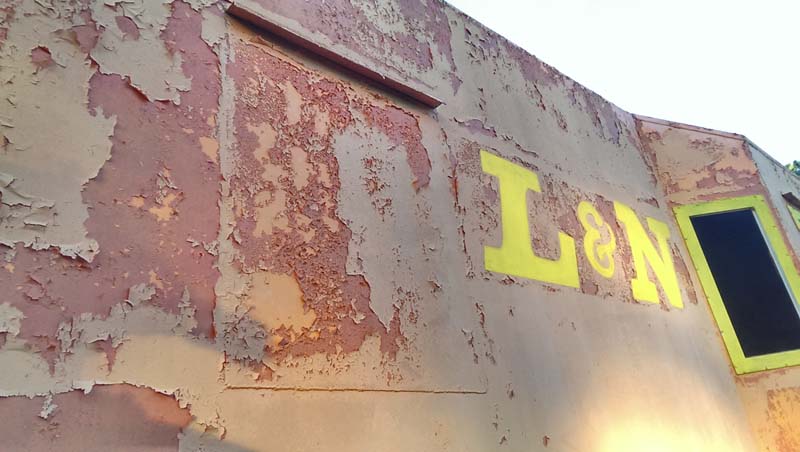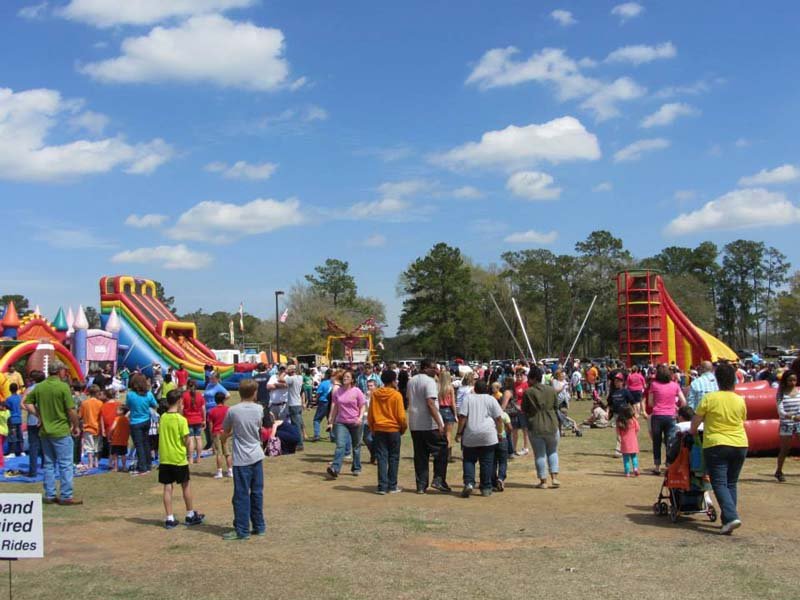
 Mayor Edward Reynolds and the Bainbridge City Council gave their approval to an agreement that will formally transfer ownership of Bainbridge’s historic train engine to the town of Corbin, Kentucky, where the locomotive will be used in a train museum.
Mayor Edward Reynolds and the Bainbridge City Council gave their approval to an agreement that will formally transfer ownership of Bainbridge’s historic train engine to the town of Corbin, Kentucky, where the locomotive will be used in a train museum.
At the council’s previous meeting, City Councilman Luther Conyers said that if Bainbridge was willing to let the train go, city leaders should at least ask for Corbin tourism officials to make their best offer on what they could do in return, to help compensate the loss.
While it’s difficult to place a monetary value on the Louisville & Nashville Engine 2132, as the train that sits in Bainbridge’s Boat Basin is known, the engine had much sentimental value to the citizens of Bainbridge and there was some feeling among city leaders that the train display also had potential value as a tourism attraction.
Corbin, which is a town of about 7,400 people in rural southeastern Kentucky, had earlier signified it wasn’t sure what tangible compensation it might could give, as most of the money allocated for its railroad museum comes from a state tourism grant, and the cost of moving a replacement diesel engine to Bainbridge was considered too great.
However, in the end, Corbin offered the City of Bainbridge $5,000 in cash, and agreed to several other conditions that while they don’t have monetary value, could provide some benefit and honor to Bainbridge.
Read the full three-page agreement here
The City of Bainbridge agrees to transfer ownership of the locomotive, its associated coal tender and caboose to the Corbin Tourism and Convention Commission.
In exchange, Bainbridge will get the following benefits:
- $5,000 to be used for any purpose the Bainbridge City Council deems fit
- Corbin’s mayor will write Bainbridge Mayor Edward Reynolds a letter on official stationary acknowledging the transfer of the train cars and thanking Bainbridge for the same
- A “Sister City” Relationship, for cross-promotion and tourism marketing purposes, will be set up between Corbin, KY and Bainbridge, GA
- References will be made on signs at the Corbin Railroad Museum and its accompanying brochures and website noting the role Bainbridge played in maintaining the train for 35 years, from 1980 to 2015.
- Corbin will also make an effort to have L & N Engine 2132 placed on the National Registry of Historic Places, after it is refurbished, “further noting Bainbridge as a working partner and praising the City of Bainbridge for its protection and maintenance of the locomotive
 Following discussion of the proposed agreement, which was drafted by Corbin officials. the Bainbridge City Council voted 5-1 (with Councilwoman Roslyn Palmer voting no) to add a couple of additional requirements.
Following discussion of the proposed agreement, which was drafted by Corbin officials. the Bainbridge City Council voted 5-1 (with Councilwoman Roslyn Palmer voting no) to add a couple of additional requirements.
- The city of Corbin, KY will be responsible for any damage caused to the Earle May Boat Basin and its paved road that may come about during the moving of the train engine and cars
- That the City of Bainbridge will have the right of first refusal on buying the train engine and caboose back if Corbin decides it does not need it after all
Ironically, Councilwoman Palmer–who was the only council member to vote against letting the train engine go to Corbin–had begun discussion of the agreement by acknowledging that she was “a team player” and generally supported the agreement. Mrs. Palmer made the suggested amendments to protect the city’s interests. However, she said she wasn’t comfortable with giving away the caboose.
 When Corbin first learned of the train engine being in Bainbridge, it didn’t initially express interest in the caboose, Palmer said. That wouldn’t be an issue except that according to media accounts, Corbin already has three other train cars, including two cabooses, it plans to use in the museum. Naturally, Engine 2132–one of only three engines of its type made by the Louisville & Nashville Railroad still in existence–would be the centerpiece of the museum.
When Corbin first learned of the train engine being in Bainbridge, it didn’t initially express interest in the caboose, Palmer said. That wouldn’t be an issue except that according to media accounts, Corbin already has three other train cars, including two cabooses, it plans to use in the museum. Naturally, Engine 2132–one of only three engines of its type made by the Louisville & Nashville Railroad still in existence–would be the centerpiece of the museum.
“Can we look at keeping the caboose here, either to move it across the Boat Basin when we develop whatever area, or if the Council decides not to keep the train, we can have the option to put it on surplus property and sell it, and I think we could get a pretty sizable sum, either from an individual who wants to put it next to a pond or in the woods, or from another community that might want it,” Palmer said.
Councilwoman Glennie Bench and Councilman Don Whaley both said they didn’t personally see any purpose in keeping the caboose.
“You’ve made some valid points that I think should be included in the agreement,” Councilman Luther Conyers said to Councilwoman Palmer. “I don’t know why we should keep part of the train here and let the other part go.”







Be the first to comment